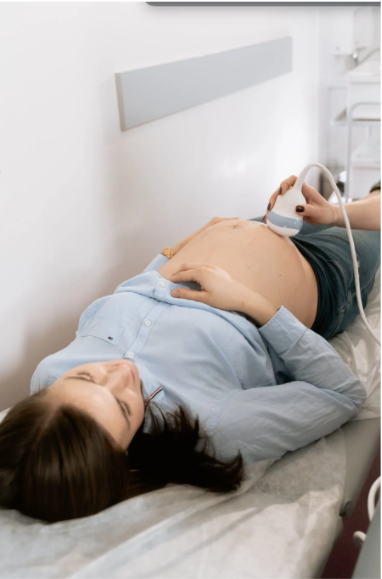Is Age Just a Number During Pregnancy?
Photo: Leah Kelley
Why “Advanced Maternal Age”?
What’s so special about the number 35? 35 is simply a mile marker on a highway. The term, “advanced maternal age” is used to identify an expecting mother over the age of 35. Though all pregnancies are unique, this number helps health care providers categorize a woman’s pregnancy risk factors and outcomes based on their age, leading to more personalized care in some cases.
What Happens At Age 35?
Does your 35th birthday indicate a biological switch in your chances of delivering a healthy baby? Absolutely not! Women are born with all of the eggs they will ever have. As our bodies age, so do our eggs.
Age 32 is loosely known as the time a woman’s eggs start to deteriorate in quantity and quality. Research supports that there is a well known association between advanced maternal age and higher risks of chromosomal abnormalities and miscarriage. This is linked to the aging process within our ovaries.
It is important to note that advancements in medicine and technology have made it easier to identify these abnormalities at a much earlier gestational age than before. Therefore, research has shown that there is a more accurate risk estimate of adverse pregnancy outcomes in the first trimester.
Remember, each body is different and this is not a hard deadline!
Photo: Mart Production
You Are Not Alone!
The average age that women are having their first child is on the rise. From 2014 to now, the average age a mother is delivering their first child has risen from 26.3 to 28 years old. Researchers expect this number to continue to rise due to career choices, higher education, and improved fertility options.
Research surrounding pregnancy and the development of a child has increased our knowledge base for the needs of both a healthy mother and baby. Studies have continued to show an increase in the number of successful pregnancies after the age of 35.
References
Frederiksen LE, Ernst A, Brix N, et al. Risk of Adverse Pregnancy Outcomes at Advanced Maternal Age. Obstet Gynecol. 2018;131(3):457-463. doi:10.1097/AOG.0000000000002504
Goisis A, Remes H, Barclay K, Martikainen P, Myrskylä M. Advanced Maternal Age and the Risk of Low Birth Weight and Preterm Delivery: a Within-Family Analysis Using Finnish Population Registers. Am J Epidemiol. 2017;186(11):1219-1226. doi:10.1093/aje/kwx177
Audette MC, Kingdom JC. Screening for fetal growth restriction and placental insufficiency. Semin Fetal Neonatal Med. 2018;23(2):119-125. doi:10.1016/j.siny.2017.11.004
“Female Age-Related Fertility Decline.” ACOG, https://www.acog.org/clinical/clinical-guidance/committee-opinion/articles/2014/03/female-age-related-fertility-decline.



